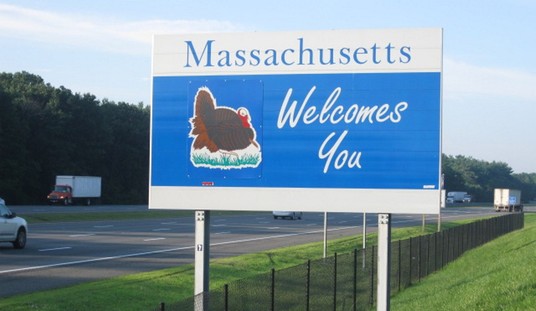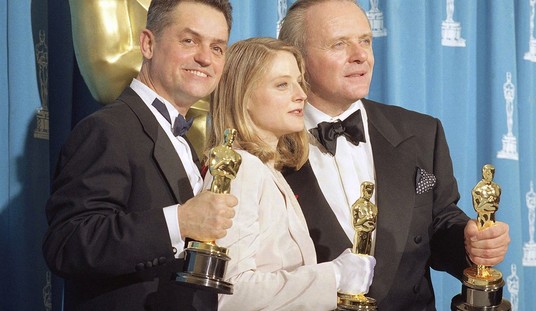Yesterday, Jim Jamitis posted on the most hysterical and hyperbolic tweets on President Trump’s decision to withdraw from the Paris Agreement. But one post can only contain so much craziness. Consider this one from Harvard Professor Joyce E. Chaplin. I’m providing her humble-brag verbatim:
Joyce E. Chaplin (PhD and MA Johns Hopkins, BA Northwestern) is the James Duncan Phillips Professor of Early American History. A former Fulbright Scholar, she has taught at five different universities on two continents and an island, and in a maritime studies program on the Atlantic Ocean. She is most interested in topics where humans and nature meet, including subjects in early American history, intellectual history, the history of science, and environmental history. An award-winning author, her major works include An Anxious Pursuit: Agricultural Innovation and Modernity in the Lower South, 1730-1815 (1993), Subject Matter: Technology, the Body, and Science on the Anglo-American Frontier, 1500-1676 (2001), and The First Scientific American: Benjamin Franklin and the Pursuit of Genius (2006). She is also the editor of Benjamin Franklin’s Autobiography: A Norton Critical Edition (2012). Her reviews and essays have appeared in the New York Times Book Review, the London Review of Books, and the Wall Street Journal. Professor Chaplin’s most recent book is the first history of around-the-world travel, Round about the Earth: Circumnavigation from Magellan to Orbit (2012).
Her hot take on the withdrawal from the Paris Agreement:
The USA, created by int'l community in Treaty of Paris in 1783, betrays int'l community by withdrawing from #parisclimateagreement today
— Joyce E. Chaplin (@JoyceChaplin1) June 1, 2017
This is profoundly stupid on any number of levels. As Charles C. W. Cooke points out:
How was the United States “created”? By a combination of the pen and the sword. In 1776, the world had been informed by a “unanimous Declaration of the thirteen united States of America” that:
these united Colonies are, and of Right ought to be Free and Independent States, that they are Absolved from all Allegiance to the British Crown, and that all political connection between them and the State of Great Britain, is and ought to be totally dissolved; and that as Free and Independent States, they have full Power to levy War, conclude Peace, contract Alliances, establish Commerce, and to do all other Acts and Things which Independent States may of right do.
By 1783, the “united Colonies” had made good on this by winning a war. To hear Chaplin tell it, you’d think that the United States was proactively invented by a collection of meddlesome powers — that its creation story was akin in nature to Belgium’s or to Pakistan’s or to Palestine’s. But it wasn’t. It was made by insurrectionists who threw off an imperial yoke, and it was recognized by the defeated entity’s surrender. Grand as its name may sound, the Treaty of Paris was not a meeting of the “international community” but a bilateral agreement — that is, an agreement that had only two signatories. Those signatories were Britain, which was surrendering and agreeing to both the terms of that surrenders and the border adjustments it yielded, and the United States, which was being recognized as a new nation. That the U.S. was widely recognized is interesting, certainly. But its existence as a sovereign nation was not the product of the Treaty of Paris any more than the existence of the incandescent lightbulb was the product of the U.S. patent office.
Even viewed in its most favorable light, Chaplin’s statement is idiocy. France recognized American independence in 1778. By 1779 Spain recognized our independence. In 1782 the Netherlands became the second nation to host an American embassy. But the focal point here is the word “recognized.” None of these countries “created” the United States, they merely “recognized” that the United States already existed. As Senator Ted Cruz tweeted:
Just sad. Tenured chair at Harvard, doesn't seem to know how USA was created. Not a treaty. Declaration+Revolutionary War+Constitution=USA. https://t.co/tQALvjdkTs
— Ted Cruz (@tedcruz) June 2, 2017
Naturally, Chaplin doubles down
Sad. US Senator, Harvard Law degree. Doesn't know that national statehood requires international recognition. https://t.co/gcxtJifWCl
— Joyce E. Chaplin (@JoyceChaplin1) June 2, 2017
This is as nonsensical as her original tweet and shows the degree to which higher education has become virtually knowledge-free. The idea of “national statehood” is a fairly new concept in the broad sweep of history and international recognition never creates statehood, it merely confirms that statehood exists. For instance, did the international community create the Netherlands? Or was it the Dutch revolt that drove the Spanish out? Conversely, did the international community extinguish Latvia, Lithuania, and Estonia in 1940 and create them again in 1991, or did the international community simply ratify what had already happened? Rhodesia was never recognized by the international community but was indisputably independent for fourteen years (1965-1979).
What Chaplin is pushing upon unsuspecting and totally credulous undergrads is a version of history that is wrong and that accepts the post-World War II international order as the way things have always been. The only good thing about this is discovering a university to which I will never allow my kids to apply for admission.














Join the conversation as a VIP Member